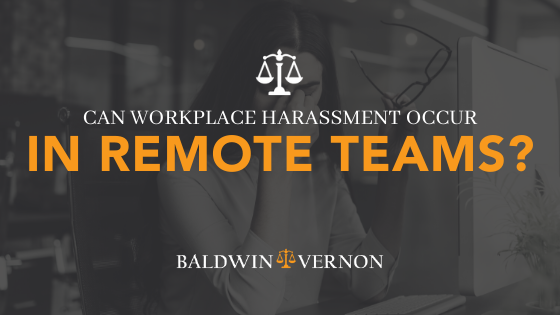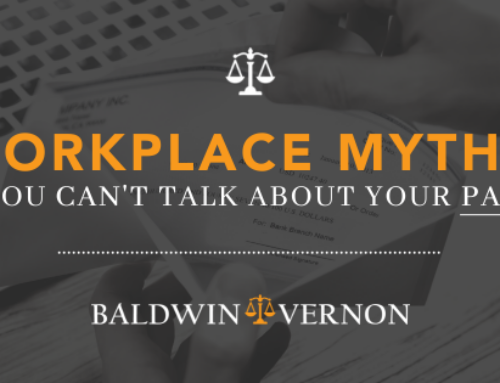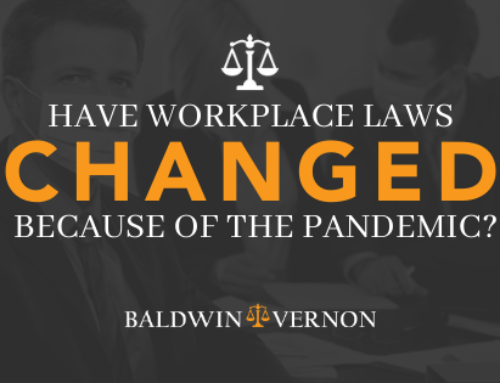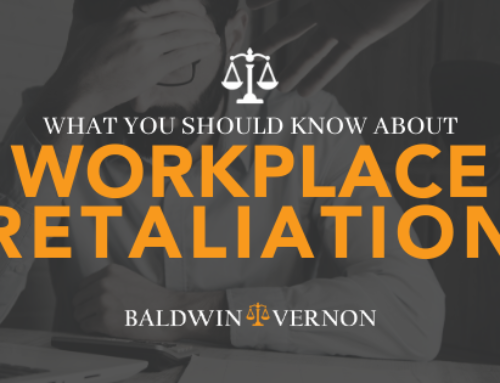With stay-at-home orders in place, companies around the world are navigating a new way of working, and it isn’t in an office setting. While workplace harassment is normally understood as inappropriate touches in the hallway or lewd jokes in the breakroom, a remote employee can experience unlawful harassment from their home, as well.
According to the U.S. Equal Employment Opportunity Commission (EEOC), harassment is “unwelcome conduct that is based on race, color, religion, sex (including pregnancy), national origin, age (40 or older), disability or genetic information.”
The EEOC continues to say that harassment “becomes unlawful where 1) enduring the offensive conduct becomes a condition of continued employment, or 2) the conduct is severe or pervasive enough to create a work environment that a reasonable person would consider intimidating, hostile, or abusive.”
Whether you are communicating through email threads, text messages, video chats, or phone calls, harassment can be just as present and just as unlawful.
Examples of remote work harassment
Even though you aren’t in the same room with colleagues, supervisors, or leaders, harassment can still occur. While harassment can take form in a variety of ways, here are some examples of how you could be experiencing harassment while working from home.
- A colleague is sending you offensive suggestions or demanding sexual favors through the company online chat platform, even when you’ve made it clear that you don’t find it appropriate.
- A team member sends you text messages that are demeaning and insulting about your gender, and when you talk with your manager about the harassment, the manager laughs about it and shrugs it off.
- While there wasn’t a problem in the office, harassment began once everyone started working from home in the form of lewd side comments when no one is on a call.
- Your boss is sending you inappropriate pictures after you’ve asked him or her to stop multiple times.
- A fellow employee is making comments in the public chat about your race and culture and everyone continues to laugh in reaction, while you find it disrespectful.
- You tell your boss about offensive comments that occur in your weekly video chat with your manager and your boss starts passing you up for promotions and handing off your projects to another team member in retaliation.
- The harassment started when you were in office with unsolicited shoulder rubs and whisper insults, and it has transformed into online bullying such as offensive chat comments.
- During your weekly 1-on-1 calls with your supervisor, he or she makes inappropriate gestures and comments that make you dread the call and lead to you making up excuses to not attend the meeting.
What do I do?
The EEOC says that employees should “inform the harasser directly that the conduct is unwelcome and must stop. Employees should also report harassment to management at an early stage to prevent its escalation.”
Another important part is to document the events. Due to the nature of the harassment, it is much easier to document the harassment because of its appearance on computers or telephones.
Find a law firm that is experienced in workplace harassment and discrimination cases. An attorney can help you understand your case so that you can begin protecting yourself and defending your rights. Due to the current circumstances, many law firms are available via video chat to replace face-to-face meetings.
While working from home can bring up a variety of challenges, harassment should not be one of them. If you feel that you are being harassed online or bullied due to your race or gender, the law is on your side.
Contact Baldwin & Vernon so that they can help you navigate this stressful situation.







